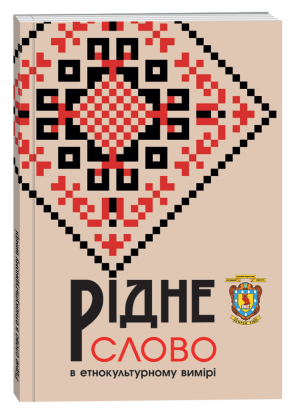SPECIFIC FEATURES OF PROFESSIONAL-PEDAGOGICAL COMMUNICATION IN THE ACTIVITIES OF ELEMENTARY SCHOOL TEACHER
DOI:
https://doi.org/10.24919/2411-4758.2018.140846Keywords:
communication, professional-pedagogical communication, humanization of communication, speech.Abstract
The article examines the problems of communication as a specifi c form of interaction and information exchange, which is conducted according to certain rules and norms. Aim of the article – to analyse the problems of professional-pedagogical communication as certain quality of teacher that assists successful cooperation at the level of relations «subject-subject». The components of professional-pedagogical communication as a specifi c type of educational work and the features of elementary school teacher are analyzed. It is emphasized, that educational w ork, which is based on communication with the pupils, facilitates not only an information exchange, sympathy, cognition of personality and self-fulfi llment, but most notably it must be based on humanistic ideas, i. e. the ability to listen, understand and create favorable psychological atmosphere. It was discovered, that verbal and non-verbal communications are essential in professional-pedagogical work of a teacher. Speech of a teacher, as well as his/her facial expression, pantomimicry, posture and visual contact contribute to the harmonization of relations. The importance of the usage of IT on the basis of computers’ networks in elementary school is emphasized. Thus, professional-pedagogical communication as a certain system of interconnections and teacher’s communication is realized through verbal and non-verbal means. The usage of information and communication technologies, which play a crucial role in an interpersonal connection and demand from a teacher a variety of skills and expertise. Сan be the power of the word to fi ll in the criterion of truth. The conducted research does not conclude all of the aspects of the given problem. The issues of developing of speech culture among youth, the necessity to train a humanitarian communication among pupils, culture of computers’ usage in learning activity of elementary school pupils, still remain topical.
References
Балакіна, Л. Л. (2007) Теорія комунікації як основа педагогічної взаємодії. Філософія освіти, 1, 175 – 178.
Бацевич, Ф. С. (2007) Словник термінів міжкультурної комунікації. Київ, Довіра.
Вихованець, І. Р. (1990) Таїна слова. Київ, Радянська школа.
Волкова, Н. П. (2002) Педагогіка. Київ, Академія.
Волкова, Н. П. (2006) Професійно-педагогічні комунікації. Київ, Альма- матер.
Гончаренко, С. У. (1997) Український педагогічний словник. Київ, Либідь.
Державний стандарт початкової загальної освіти Взято з http://mon. gov.ua/content//project.pdf
Іванишин, В. (1994) Мова і нація. Дрогобич, Відродження.
Ковальчук, Л. О. (2007) Основи педагогічної майстерності. Львів, Видавничий центр Львівського національного університету імені Івана Франка.
Кравець, В. (1996) Історія класичної зарубіжної педагогіки та шкільництва. Тернопіль.
Лузецька, Л. (2011). Лексичні засоби виразності мовлення та їхня роль у становленні мовної особистості майбутнього вчителя. Рідне слово в етнокультурному вимірі. Матеріали Третьої Міжнародної науково-практичної конференції. Дрогобич, Посвіт, 438 – 444.
Мостова Т. (2002). Світ на ім’я Амонашвілі. Освіта України. 79, 8.
Ушинський К. Д. (1975) Рідне слово. Том 1. Київ, Радянська школа.

